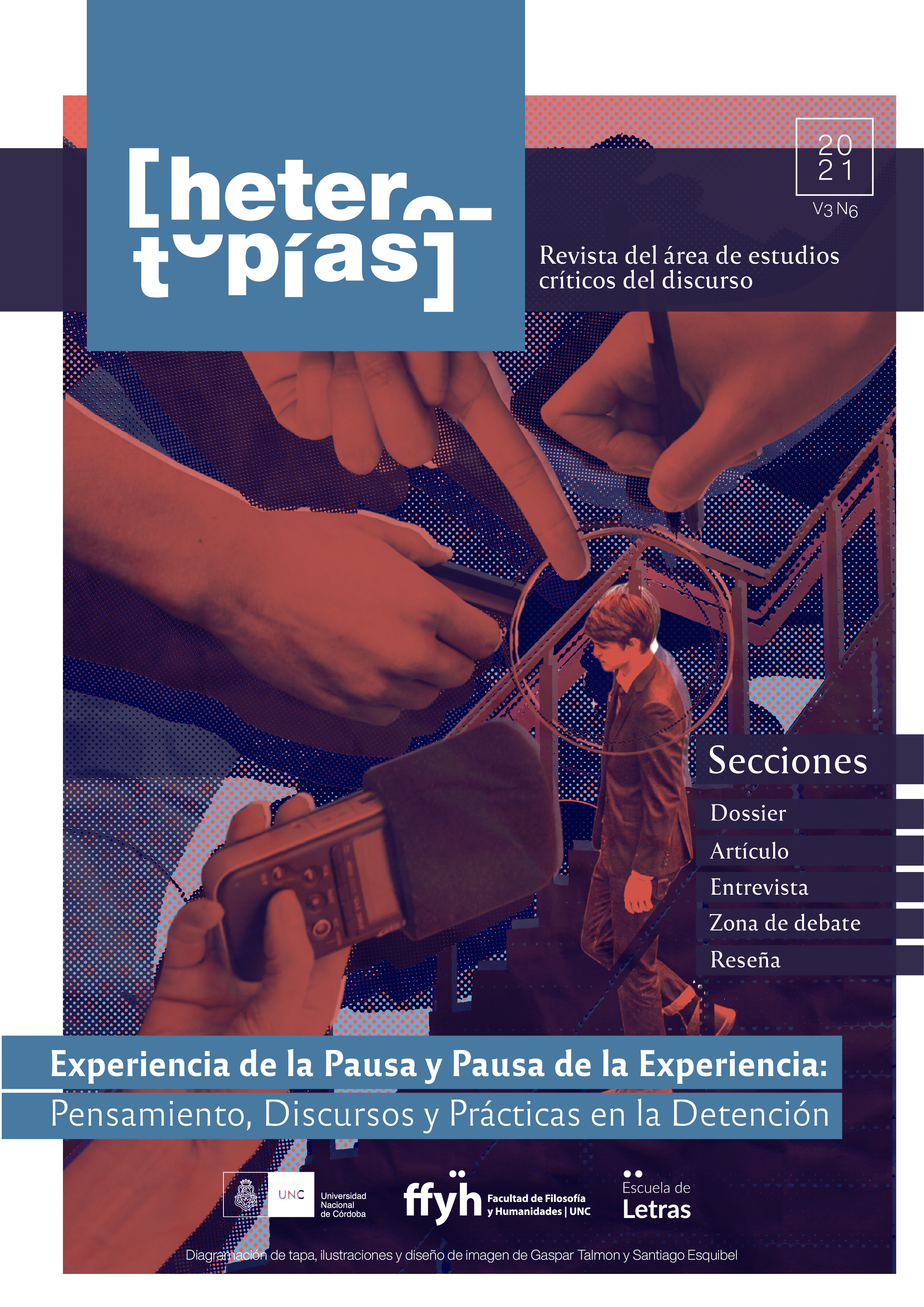Reimaginar la literatura argentina desde el alcohol: una lectura de black out de María Moreno
Main Article Content
Abstract
The purpose of the present article is to investigate the argentine literary and critical canon rewritings that burst into Black out, book by Maria Moreno, writer and journalist, published in 2016. From an alcoholic reversal, the novel tries out a delirious intervention on paradigmatic scenes of the XIX argentine literature. This paper analyzes how these interventions refute any unique and close origin: now other beginnings are fancied for some of the stories considered “foundational” in the argentine literature and culture. That’s how, both the black out that results from alcohol abuse and the fragment rearrangement given at sober times, function together to create a different genealogy from the one of argentine literature. Accordingly, we can see which stories are removed from the traditional literature rewritings soaked in alcohol in Black out. What are the new beginning proposals and how the alcohol pauses help to review those “major” speeches from and about literature? To inquire about that other thing, the one left by the drunkenness which opens and blooms during hangover dreams will be one of the main objectives of this work.
Downloads
Article Details

This work is licensed under a Creative Commons Attribution-NonCommercial-ShareAlike 4.0 International License.
Those authors who have publications with this journal, accept the following terms: Those authors who have publications with this journal, accept the following terms:
a. The authors will keep their copyright and guarantee to the journal the right of first publication of their work, which will be simultaneously subject to the Creative Commons Attribution - Non-Commercial - Share Alike (by-nc-sa) Attribution License; no commercial use of the original work or any derivative works is allowed, the distribution of which must be done with a license equal to the one that regulates the original work.
b. Authors may adopt other non-exclusive license agreements for the distribution of the published version of the work (e.g., deposit it in an institutional telematic archive or publish it in a monographic volume) provided that the initial publication in this journal is indicated.
c. Authors are allowed and recommended to disseminate their work through the Internet (e.g. in institutional telematic archives or on their website) before and during the submission process, which may lead to interesting exchanges and increase the number of citations of the published work. (See The effect of open access).
How to Cite
References
Cabezón Cámara, G. (2017). Las aventuras de la China Iron. Buenos Aires: Literatura Random House.
Contreras, S. (2014). Los tiempos de Lucio V. Mansilla. Cuadernos LIRICO, (10), 1-16. Recuperado de http://journals.openedition.org/lirico/1710.
Crespi, M. (2017). Black out. Chuy. Revista de estudios literarios latinoamericanos, 4, 93-106.
De Lauretis, T. (2015). Género y teoría queer. Revista Mora, 21, 107-118.
De Leone, M. L. (enero-junio, 2011). Una poética del nombre. Los “comienzos” de María Moreno hacia mediados de los años ‘80 en el contexto cultural argentino. Cuadernos pagu, (36), 223-256. Recuperado de https://www.scielo.br/scielo.php?pid=S0104-83332011000100009&script=sci_abstract&tlng=eshttps://www.scielo.br/scielo.php?pid=S0104-83332011000100009&script=sci_abstract&tlng=e
Delfino S. y Rapisardi Flavio. (2009). Cuirizando la cultura argentina La Queerencia. Ramona, 99, 10-14.
De Mendoça, I. (2013). Proximidades de Tierra Adentro. Escuchar y hablar en Una excursión a los indios ranqueles. Estudios de Teoría Literaria, 2, 33-50.
Duras, M. (1993). La vida material. Barcelona: Plaza y Janés.
Echeverría, E. (1961). La cautiva. Buenos Aires: Huemul.
Foucault, M. (2005). Nietzsche, la genealogía, la historia. Valencia: Pre-textos.
González-Sawczuk, S. (enero-junio, 2008). Lecturas sobre la tradición literaria argentina y construcción de una nación. Mem.soc, 12 (24), 7-17.
Hernández, J. (2001): El gaucho Martín Fierro. En Lois, E. y Núñez A. (Coord.). Martín Fierro. Edición Crítica. Madrid: Scipione
Kohan, M. (2015). El amor. En Cuerpo a tierra. Buenos Aires: Eterna Cadencia.
Link, D. (2019). Ficciones informales. Revista Heterotopías del Área de Estudios Críticos del Discurso de FFyH. 2 (4).
Mansilla, L. V. (2006). Una excursión a los indios ranqueles. Buenos Aires: Editorial Corporativa de Libreros.
Molloy, S. (octubre-diciembre, 2000). La cuestión del género: propuestas olvidadas y desafíos críticos. Revista Iberoamericana, LXVI (193), 815-819.
Moreno. M. (2011). Teoría de la noche. Santiago de Chile: Universidad Diego Portales.
Moreno, M. (2016). Black out. Buenos Aires: Literatura Random House.
Moyano, M. (2008). Literatura, Estado y Nación en el siglo XIX argentino: el poder instituyente del discurso y la configuración de los mitos fundacionales de la identidad. Amérique Latine Histoire et Mémoire. Les Cahiers ALHIM, (15). Recuperado de: http://journals.openedition.org/alhim/2892.
Moyano, M. (2002). La fundación ideológica de las literaturas nacionales. Literatura y territorialización en el siglo XIX argentino. CUYO. Anuario de Filosofía Argentina y Americana, 18-19.
Pauls, A. (2016). El libro de la semana por Alan Pauls: Black out de María Moreno. Buenos Aires: Télam. Recuperado de: https://www.telam.com.ar/notas/201612/174472-libros-novedad.html
Rodríguez, A. (2019). Entrevista a María Moreno: “El alcohol me salvó de experiencias que me parecen más terribles”. Buenos Aires: Letras Libres. Recuperado de: https://www.letraslibres.com/espana-mexico/libros/entrevista-maria-moreno-el-alcohol-me-salvo-experiencias-que-me-parecen-mas-terribles
Sosnowski, S. (Comp.). (1996). Lectura crítica de la literatura americana. La formación de las culturas nacionales. Buenos Aires: Ayacucho.
Viñas, D. (junio, 1982). Lucio V. Mansilla a contraluz: de duelos, chinas, memorias y olvidos. Clarín, suplemento Cultura y Nación, 1-7.
Williams, R. (1980). Marxismo y literatura. Barcelona: Península.
